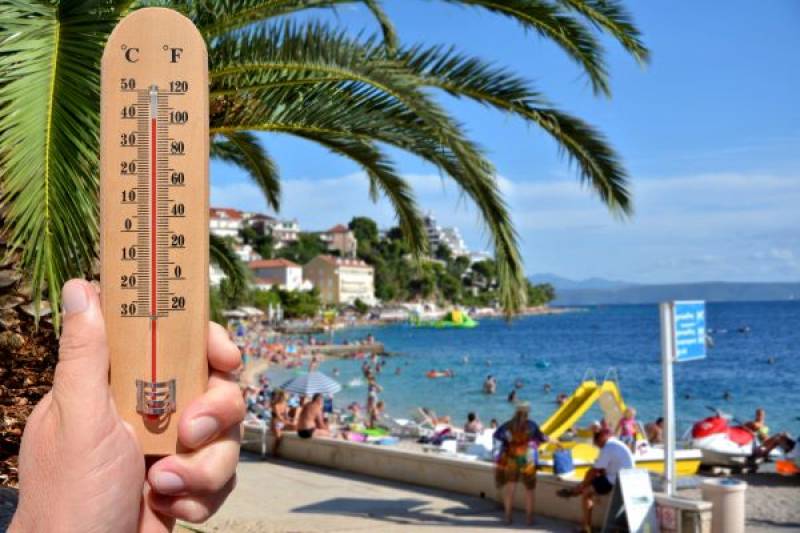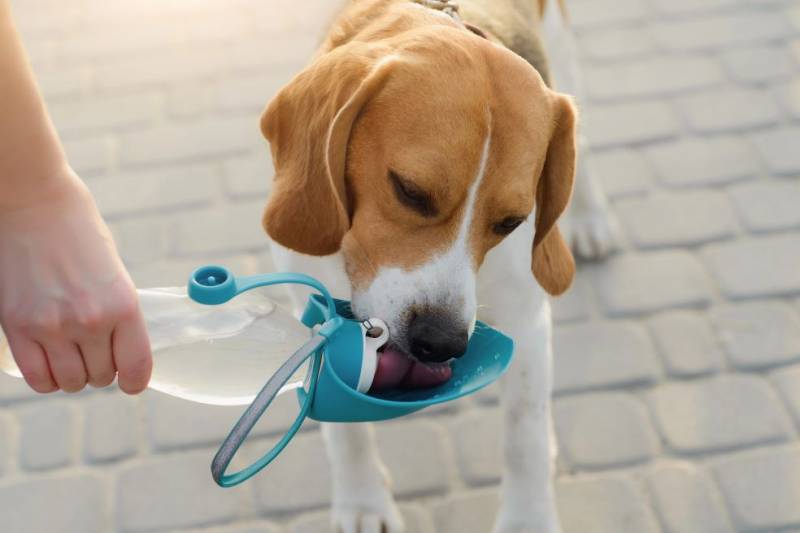- Region
- Vega baja
- Marina Alta
- Marina Baixa
- Alicante
- Baix Vinalopo
- Alto & Mitja Vinalopo
-
ALL TOWNS
- ALICANTE TOWNS
- Albatera
- Alfaz Del Pi
- Alicante City
- Alcoy
- Almoradi
- Benitatxell
- Bigastro
- Benferri
- Benidorm
- Calosa de Segura
- Calpe
- Catral
- Costa Blanca
- Cox
- Daya Vieja
- Denia
- Elche
- Elda
- Granja de Rocamora
- Guardamar del Segura
- Jacarilla
- Los Montesinos
- Orihuela
- Pedreguer
- Pilar de Horadada
- Playa Flamenca
- Quesada
- Rafal
- Redovan
- Rojales
- San Isidro
- Torrevieja
- Comunidad Valenciana
article_detail
Your complete guide to staying safe in this heatwave
It's getting to be over 40ºC in parts of Spain right now

With summer temperatures soaring in Spain, it’s essential to prioritise safety for yourself, your pets, and those around you. Here’s a comprehensive guide to staying hydrated, exercising safely, handling emergencies and protecting your pets during the hottest months.
Water, white clothes and workouts
Staying hydrated is crucial in Spain's summer heat. Drink plenty of water – whether cold or room temperature doesn't really matter – to make sure your body can replace the liquids it loses through sweat.
Be sure to listen to your body and adjust your water intake based on your activities and how much you need.
If exercising, it's especially important to stay hydrated, and for high-intensity exercises, you should consider sports drinks with electrolytes to replace those lost through sweating. Pay close attention to what your body is telling you, and watch for signs like dizziness, nausea or excessive fatigue. Slow down or take breaks if you experience any of these symptoms to avoid heat exhaustion or heatstroke.
It's also better to exercise during the cooler hours, either in the early morning or late in the evening, to avoid the intense midday sun. Increase your workout intensity slowly to help your body acclimatise to the heat, starting with lower-intensity exercises and gradually ramp up.
Whether exercising or not, another good tip in summer is to wear lightweight, loose-fitting clothes that allow your skin to breathe. Wearing black will absorb heat and make you hotter, so choose lighter colours like white instead, which will reflect the sunlight and help keep you cool. And even if you're not a hat person, it's not a bad idea to protect your neck, head and face with a cap.
What to do in an emergency
Unfortunately, there are far too many incidents every summer of people running into trouble in the water or on the beach, but fast action can help to save a life.
Knowing how to respond to possible incidents of drowning is vital, and lifeguards recommend following the 'PAS' rule (Protect, Alert, Save) to handle such emergencies effectively:
- Protect: Before attempting a rescue, prioritise your safety. Call for help and get the attention of nearby lifeguards or beachgoers.
- Alert: Shout for assistance and throw a flotation device if available. Avoid risky rescue attempts if you're unsure of your swimming abilities.
- Save: If you enter the water, get the person out as quickly and safely as possible. Clear their nose and mouth of obstructions and place them face-up on the shore. Check for responsiveness by talking to them, touching them, or pinching them gently.
If the person is responsive, call the emergency services (dial 112 in Spain) for medical advice. If unresponsive, call 112 immediately and follow the operator's instructions. Provide detailed information about the situation and your location.
Looking after pets during a heatwave

It's not only people who can suffer in extreme heat, so pet owners must be vigilant. Dehydration, burns and cracked paw pads are common issues that can affect dogs in hot weather, so be sure to take steps to protect them as well:
- Adjust walking schedules: Avoid walking your dog during the hottest parts of the day, and go for early morning or late evening walks instead.
- Give them more water: Ensure your dog has constant access to fresh water by carrying a portable water bottle and bowl during walks.
- Give them a haircut: Brush your dog regularly to remove excess fur, but absolutely do NOT shave their coat completely as it can lead to sunburn and other skin issues.
- Try a doggy sun cream: Believe it or not, dog-specific sunscreens are available in pet stores. If your dog has light skin, apply sunblock to sensitive areas like the muzzle and belly.
- Tread carefully: Asphalt and concrete can reach extremely high temperatures. Test the ground surface with your hand – a good rule of thumb is that if it's too hot for you, it's too hot for your dog.
By following these guidelines, you can ensure that you, your loved ones, and your pets stay healthy and happy during the hottest months of the year. Enjoy the Spanish summer safely!
staff.inc.ali
Loading
Sign up for the Spanish News Today Editors Roundup Weekly Bulletin and get an email with all the week’s news straight to your inbox
Special offer: Subscribe now for 25% off (36.95 euros for 48 Bulletins)
OR
you can sign up to our FREE weekly roundup!
Read some of our recent bulletins:
Discount Special Offer subscription:
36.95€ for 48 Editor’s Weekly News Roundup bulletins!
Please CLICK THE BUTTON to subscribe.
(List price 3 months 12 Bulletins)
Read more stories from around Spain:
Contact Murcia Today: Editorial 000 000 000 /
Office 000 000 000





















